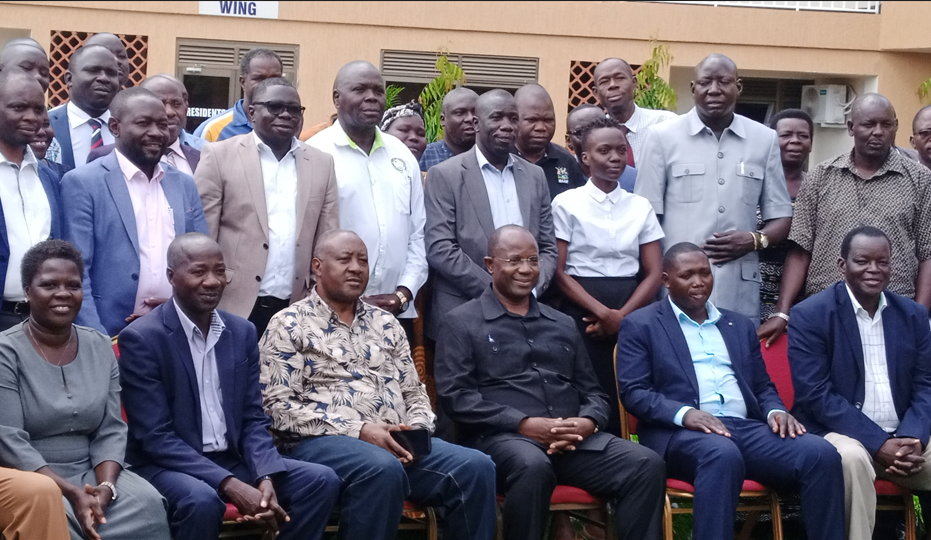Prime
Farmers to benefit from Shs600b oil seeds project

State minister for Agriculture Fred Bwino Kyakulaga (seated 3rd right) with Lango regional leaders after the launch of the oil seeds project structure in Lira City on May 16, 2024. PHOTO/BILL OKETCH
What you need to know:
- The government expects to boost oil seed production in selected areas.
At least 350,000 farmers from six regional hubs will benefit from a Shs600 billion oil seeds project aimed at reviving the production of edible oils.
The six regional hubs include West Nile and Karamoja.
However, the target set by the Ministry of Agriculture Animal Industry and Fisheries requires every beneficiary to cause an increase of one metric tonne of oil seeds.
Although Uganda’s land is arable and suitable for growing edible oil seeds such as sesame, soya bean, and sunflower, production of the same has remained low.
Under this project, sources said the government will build the capacities of farmers and support them to open larger farmlands to expand the acreage of oil crop production.
The project will further offer support to oil seed value chain development, and support to market linkage infrastructure.
Mr Fred Bwino Kyakulaga, the Minister of State for Agriculture, said Uganda currently satisfies only 20 percent of the demand of the edible oil and is striving to enhance its output by rejuvenating the vegetable oil subsector.
“The [annual aggregate] demand for edible oil in the country is half a million (500,000) metric tonnes against a production capacity of only 20 percent (100,000 metric tonnes),” he told journalists after the launch of the structure responsible for the coordination of the national oil seeds project in Lira City last Thursday.
This leaves a deficit of 400,000 metric tonnes, which he said is a great investment opportunity in the edible oil sector.
The minister said the demand for raw materials for edible oil and the increase in the prices of cooking oil and laundry soap call for scaling up production of oil seed crops.
“The government has put in more than Shs600 billion (about $160 million) into this project. So, I call upon the project staff to be diligent in what they are doing, but also to the farmers themselves,” Mr Bwino said.
He added: “When you get this support, use it well so that we achieve the target…we want to raise an extra 350,000 metric tonnes of oilseeds, and if we achieve that, we shall be able to meet the national demand from local production of oilseeds.”
Mr David Kennedy Odongo, the chairman of Alebtong District, said though the government is promoting oil seed production in Lango Sub-region, there is a need for farmers to meet standards.
“People are talking about poor quality seeds and our products being rejected in the world market. That means we don’t have a system that can guarantee the quality of seeds before we export,”Mr Odongo said, adding that farmers also grapple with accessing quality seeds.
He added: “Most of the oil seeds like the simsim (sesame), soybeans, and groundnuts – the hybrid seeds – are imported from South Africa and Kenya. What has Uganda put in place to make sure that they produce the seeds locally? ”
Minister Bwino, however, said the project would address some of the challenges Mr Odongo raised.
“For example, we are going to start a local seed certification mechanism so that you don’t need to go to Kampala or depend on seeds from Kampala. For example, you can grow seeds in Lira, and that seed can be certified at Ngetta (Zonal Agricultural Research and Development Institute),” he said.
Mr Bwino added: “So, we are putting capacity for certifying local seeds nearer to the people. But another input in the project is that we have six hubs we have designed to give tractors so that farmers can be helped with mechanised land preparation so that we have bigger land prepared for production of oil seeds.”




